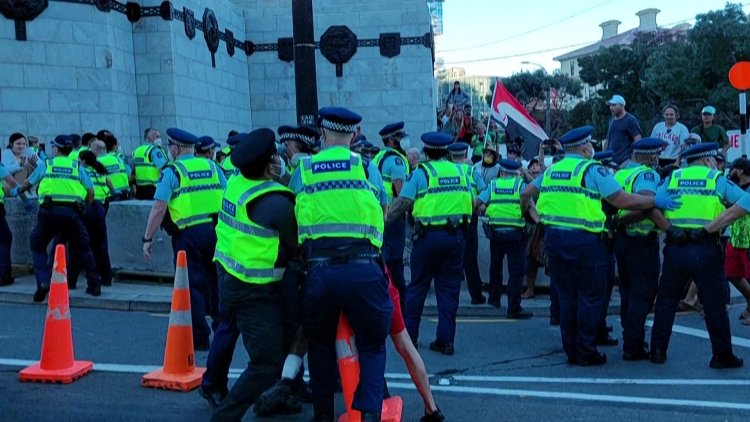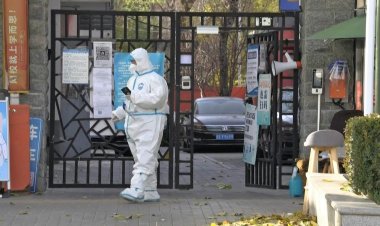Riot police clash with New Zealand anti-vax protesters

New Zealand anti-vaccine protesters pelted police with a "stinging substance" sending three to hospital with injuries Tuesday, as tensions spilled over in an angry weeks-long protest.
Prime Minister Jacinda Ardern decried "absolutely disgraceful" scenes after the suspected acid attack, and a startling incident that saw one protester speed a car toward police lines before coming to a quick halt just centimetres away.
The brief but intense confrontations erupted near New Zealand's parliament early Tuesday, as police moved roadblocks used to contain a protest camp that had clogged downtown Wellington for two weeks.
The Wellington protest began as a movement against vaccine mandates -- inspired by similar protests in the Canadian capital Ottawa.
It has since grown to around 1,500 people and encompasses a range of grievances, with some far-right messaging among the anti-government and anti-media slogans on display.
Assistant Commission Richard Chambers said three officers who were taken to hospital were "recovering well".
He blamed a "certain group within the protest" for the "appalling" attack.
"Police officers are going about their work as best they can to bring peace to the situation... there's a group (of protesters) determined to bring violence and aggression -- we can't tolerate that."
On Monday police reported demonstrators hurled human faeces at them, prompting officers to protect themselves with riot shields during the latest clashes.
Ardern said she was concerned the protest was becoming increasingly violent.
"The attacks on the police have been absolutely disgraceful," she said.
"To anyone down there who thinks they're part of a peaceful protest, that's not what we've seen today -- I would encourage them to leave."
Authorities had been taking a largely hands-off approach to the demonstration, trying to persuade protesters to voluntarily move on.
But Chambers said recent events showed "genuine protesters are no longer in control of the behaviour in and around parliament".















